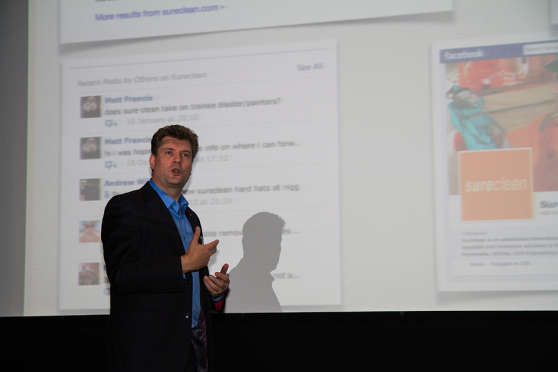Highland and north-east digital marketing businesses are crying out for universities to do more to tackle the deepening skills gap, an expert has warned.
Rene Looper, founder and managing director of Tuminds – which provides social media training programmes to businesses in the north – believes many universities have been slow to react to the evolution of marketing and offer courses that are no longer fit for purpose.
Inverness-based Tuminds works with the Scottish Government and Highlands and Islands Enterprise to provide social media training programmes to businesses in the north.
The problem, in his view, is that universities are still teaching a more “traditional” style of marketing which pays lip service to digital technologies which have become important to firms.
It means employers have to help staff, including recent graduates, get to grips with social media communication skills, online analysis tools and search engine optimisation, when they should already have that know-how.
A recent report by software giant Adobe showed 82% of marketing professionals learn these skills on the job, and that many businesses lack the resources to provide effective training.
Companies cited a shortage of “appropriate skills” inside the business as the main factor behind their inability to implement digital technologies.
Mr Looper said: “Marketing has changed so quickly in a short space of time that universities have not caught up.
“There is a willingness to change but it’s not something they can decide to do in one day and, obviously, I understand that.
“It’s crucial they speak to people in digital marketing about what we see as a gap between what students learn at university and what skills businesses are now looking for.”
It seems the digital skills gap is making itself felt throughout the UK. A new study by the Confederation of British Industry and IT company IBM showed 45% of so-called “pioneer” firms falling behind in the race to adopt digital processes.
CBI director-general Carolyn Fairbairn said: “Businesses globally are in the throes of an extraordinary digital revolution that is transforming productivity and creating a new generation of winning companies. But in the UK, too many firms are being left behind.”
“While pioneering firms are seizing digital opportunities, nearly half are struggling – a growing digital divide that is threatening UK competitiveness.”
Robert Gordon University (RGU) is among the educational establishments tackling the issue by offering a postgraduate degree in digital marketing.
According to Ilias Angelogiannis, who is on the MSc course at RGU, prospective students looking for digital marketing courses are hardly spoilt for choice.
Mr Angelogiannis said: “People have to learn at work and it takes a lot of time. If you can find a course which gives you that insight, you will be more useful to an employer.”
